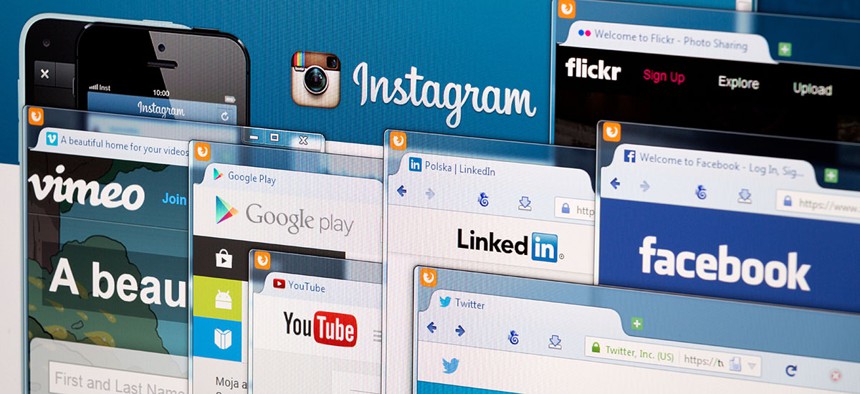DHS Joins Facebook, YouTube at Counter Terrorism Summit

REDPIXEL.PL/Shutterstock.com
The tech companies are banding together to prevent extremists from using their platforms to spread violent messages.
The Homeland Security Department is working with social media giants Twitter and Facebook to combat violent extremism online.
On Tuesday the department's Acting Secretary Elaine Duke attended the Global Internet Forum to Counter Terrorism in San Francisco, along with representatives from Twitter, Facebook, Microsoft and YouTube. The United Kingdom's homeland security head Amber Rudd also joined.
“The internet provides terrorists with a virtual safe haven to recruit followers in our communities and plot against us,” Duke said in a statement.
» Get the best federal technology news and ideas delivered right to your inbox. Sign up here.
DHS plans to work with the private sector to "support their efforts to remove dangerous content and terminate known terrorist accounts," Duke said in that statement.
Tech companies also help with "amplifying credible voices to counter the false narrative of groups like ISIS and al Qaeda," though the department must combat extremist language "while protecting free speech and privacy.”
YouTube, for instance, has launched a few new efforts to detect and remove content that could be potentially dangerous. It's taking a two-pronged approach to detection, using both artificially intelligent tools and human judgment to flag such content. About 75 percent of the videos removed from YouTube over the past month were detected by technology before a human had a chance to flag it, according to the company. It's also working with outside groups such as the Anti-Defamation League to identify potentially dangerous videos.
Some videos containing hate speech, though, don't technically violate YouTube's codes and aren't illegal, so the company has pledged not to monetize or promote those videos to users.
Washington doesn't always see eye to eye with commercial tech companies, particularly on user privacy issues. For example, in 2015 the FBI demanded Apple help it access an iPhone used by one San Bernardino shooters they suspected of communicating through encrypted messaging apps. Apple fought that request and lawmakers butted heads with tech companies and other encryption advocates. The bureau eventually paid a company to crack the device.
Facebook Chief Operating Officer Sheryl Sandberg recently defended the use of encryption in the Facebook-owned messaging app WhatsApp. Though encryption hides the content of messages, she said governments could still identify potentially dangerous interactions using metadata attached to messages.
“The goal for governments is to get as much information as possible,” Sandberg said on the BBC's "Desert Island Disc" show, according to The Washington Post. “And so when there are message services like WhatsApp that are encrypted, the message itself is encrypted but the metadata is not, meaning that you send me a message, we don't know what that message says, but we know you contacted me.”





